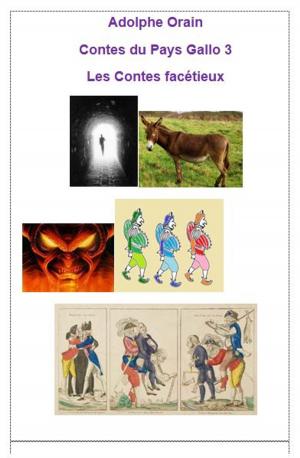A Jar of Honey from Mount Hybla
Kids, People and Places, Folklore and Mythology, Nonfiction, History, Italy, Social & Cultural Studies, Social Science, Folklore & Mythology| Author: | Leigh Hunt | ISBN: | 1230000219819 |
| Publisher: | SMITH, ELDER, & CO. | Publication: | February 20, 2014 |
| Imprint: | Language: | English |
| Author: | Leigh Hunt |
| ISBN: | 1230000219819 |
| Publisher: | SMITH, ELDER, & CO. |
| Publication: | February 20, 2014 |
| Imprint: | |
| Language: | English |
A Jar of Honey from Mount Hybla
Italian! Why, Italy will be talked about this Christmas at half the tables in England, with the Pope and Mr. Cobden at its head; and we think we see our little Blue Jar the more valued accordingly. Mr. Cobden has returned from Italy, brimful, as such a man ought to be, of its beauties and merits. He himself will talk plentifully about it; and others will talk, because he has talked already. The Duke of Devonshire has been in Italy. Lord John has an Envoy in Italy. Every reigning circle of private and public life has had its representative visitor in that country. Everybody, indeed, may be said to visit it every day in the newspapers, to see how the Pope and Reform are going on; poor Sicily has been in trouble with its “Captain Romeo” (strange link of times past and present); and Mr. Cobden has the magnanimity to express his regret that he had not made himself a master, when he was young, of the language of the beautiful peninsula.
Now, one of the great objects of the present writer, for many years past, has been to lure his readers into the love of other languages, particularly of this most beautiful of them all. It is for this reason he has scarcely ever quoted the most trivial expression from any one of them without giving a version of it; knowing well, how many intelligent men there are who would enjoy the original, if they knew it, far better than many an accidental scholar, and who are therefore willing[Pg 7] to have the least glimpse of it afforded them. It has been well said, that “mankind will cease to quarrel with one another, when they understand one another.” Mr. Cobden, in his entertaining and instructive speech at the Manchester Athenæum, has told us how he was struck with this conviction during his tour. But he arrived at it before, by the intuition of a happy nature. Why, for his own delight, does he not make himself a master of the language he so admires? He is a reader by the fireside; and one hour’s reading, per diem, would render such a man more intimate with it in the course of a year than nine-tenths of its masters in England. But perhaps he is such. At all events, he may have become acquainted with it sufficiently for enjoyment; as much, for instance, as ourselves; more so, if he speaks it; for though we read, well enough, most of the languages that we translate, we can speak them no better than just to make our way through Italy and France. We mention this, partly that we may not seem to know more than we do, and partly to encourage others to learn. A little hearty love is better in this, as in all other cases, than a heap of indifferent knowledge. We are ashamed to say, that we know less of Greek, in one sense of the word, than we did when young, and are obliged to look out more words in the dictionary; for to a dictionary we are still forced to resort, though we love the language next to Italian, and hold it in higher admiration. But then we know our ignorance better than we did at that time; are more aware of beauties to be enjoyed, and nice meanings to be discovered; and the consequence is, that whenever we undertake to translate a passage from Greek, we take our love on one side of us, and our dictionary on the other, and before we set about it, make a point of sifting every possible meaning and root of meaning, not excepting those in words the most familiar to us, in order that not an atom of the writer’s intention may be missed. We do not say, of course, that we always succeed in detecting it; but it is not for want of painstaking.
A Jar of Honey from Mount Hybla
Italian! Why, Italy will be talked about this Christmas at half the tables in England, with the Pope and Mr. Cobden at its head; and we think we see our little Blue Jar the more valued accordingly. Mr. Cobden has returned from Italy, brimful, as such a man ought to be, of its beauties and merits. He himself will talk plentifully about it; and others will talk, because he has talked already. The Duke of Devonshire has been in Italy. Lord John has an Envoy in Italy. Every reigning circle of private and public life has had its representative visitor in that country. Everybody, indeed, may be said to visit it every day in the newspapers, to see how the Pope and Reform are going on; poor Sicily has been in trouble with its “Captain Romeo” (strange link of times past and present); and Mr. Cobden has the magnanimity to express his regret that he had not made himself a master, when he was young, of the language of the beautiful peninsula.
Now, one of the great objects of the present writer, for many years past, has been to lure his readers into the love of other languages, particularly of this most beautiful of them all. It is for this reason he has scarcely ever quoted the most trivial expression from any one of them without giving a version of it; knowing well, how many intelligent men there are who would enjoy the original, if they knew it, far better than many an accidental scholar, and who are therefore willing[Pg 7] to have the least glimpse of it afforded them. It has been well said, that “mankind will cease to quarrel with one another, when they understand one another.” Mr. Cobden, in his entertaining and instructive speech at the Manchester Athenæum, has told us how he was struck with this conviction during his tour. But he arrived at it before, by the intuition of a happy nature. Why, for his own delight, does he not make himself a master of the language he so admires? He is a reader by the fireside; and one hour’s reading, per diem, would render such a man more intimate with it in the course of a year than nine-tenths of its masters in England. But perhaps he is such. At all events, he may have become acquainted with it sufficiently for enjoyment; as much, for instance, as ourselves; more so, if he speaks it; for though we read, well enough, most of the languages that we translate, we can speak them no better than just to make our way through Italy and France. We mention this, partly that we may not seem to know more than we do, and partly to encourage others to learn. A little hearty love is better in this, as in all other cases, than a heap of indifferent knowledge. We are ashamed to say, that we know less of Greek, in one sense of the word, than we did when young, and are obliged to look out more words in the dictionary; for to a dictionary we are still forced to resort, though we love the language next to Italian, and hold it in higher admiration. But then we know our ignorance better than we did at that time; are more aware of beauties to be enjoyed, and nice meanings to be discovered; and the consequence is, that whenever we undertake to translate a passage from Greek, we take our love on one side of us, and our dictionary on the other, and before we set about it, make a point of sifting every possible meaning and root of meaning, not excepting those in words the most familiar to us, in order that not an atom of the writer’s intention may be missed. We do not say, of course, that we always succeed in detecting it; but it is not for want of painstaking.















